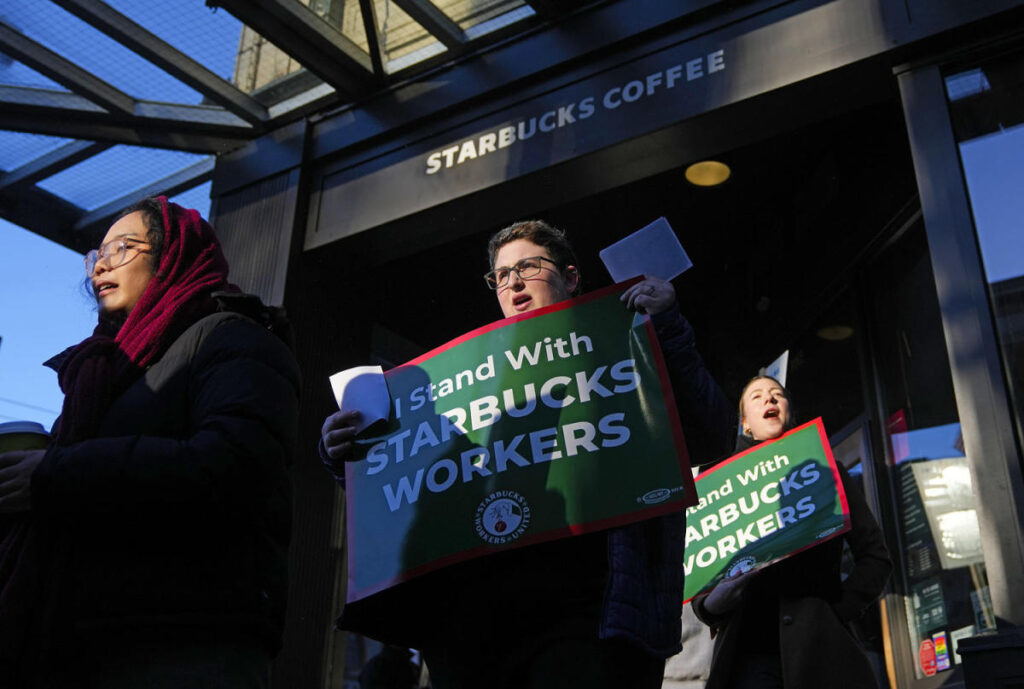Starting this week, aficionados of Starbucks’ beloved holiday drinks may find them difficult to obtain. This situation arises as Starbucks Workers United, the union representing baristas, announced an impending strike beginning Friday in significant markets including Seattle, Los Angeles, and Chicago. The union has stated that this move is a direct response to Starbucks’s “failure to bring viable economic proposals to the bargaining table” and to address numerous ongoing unfair labor practice charges. The strike has generated significant attention, particularly as it coincides with the vital holiday season when sales usually peak.
The scope of the union’s representation is impressive, covering over 500 stores and more than 10,500 workers. Starbucks operates nearly 10,000 company-owned stores across the United States, underscoring the potential impact of the strike. The brewing tension between the union and the corporation highlights a growing trend in the labor movement, where employees are increasingly vocal about their rights and needs within the workplace. The Starbucks Workers United expressed their frustration on social media, emphasizing that despite the company’s public commitments to reach contracts by the end of the year, there has been little tangible progress.
Baristas have been particularly disheartened by Starbucks’s lack of serious economic proposals. The union outlined that the most recent offer from the company falls short, providing no immediate wage increases and a modest guaranteed increase of just 1.5% for future years, which many employees consider unacceptable given the rising cost of living. The call to action involves a series of escalating strikes over five days, expanding potentially to other cities and continuing through Christmas Eve, unless the company makes substantial moves toward a satisfactory contract framework.
As the strikes loom, attention is drawn not only to Starbucks but also to parallel labor actions in the industry. For instance, nearby, the Teamsters union has announced strikes at various Amazon delivery facilities, coinciding with the holiday rush when delivery services are in high demand. This trend signifies a larger shift within the labor landscape, where various sectors are confronting corporations over labor rights, wages, and working conditions.
While Starbucks has not yet publicly responded to the union’s announcement, the potential ramifications of the strike could ripple through the retail coffee sector and beyond. If baristas successfully mobilize and inspire further actions in other locations, the strike could lead to widespread disruptions during one of the busiest retail periods of the year. Both consumers and industry analysts are watching closely, as the outcome may set precedents for labor relations in retail, particularly in the post-pandemic economy.
With the stakes high, the situation reflects broader themes of labor activism in America today. Workers are increasingly uniting to demand better wages, benefits, and treatment from their employers, pushing back against corporate practices that they view as exploitative. As the holidays approach, the union’s actions signal a critical moment for both Starbucks and its workers, the results of which could redefine labor negotiations and set the tone for the future of work in the service industry.

